Learn about the time it takes each planet to orbit the sun with this poster and cut-and-paste worksheet for your students.
Mapping the Cosmic Dance – A Poster and Worksheet Adventure!
The orbital period of a planet is the time it takes for that planet to complete one full orbit around the Sun. This period is measured in Earth years since our own planet’s orbit is often used as a standard reference. Each planet in our solar system has a unique orbital period based on its distance from the Sun and the gravitational forces acting upon it.
Kids should learn about orbital periods because it helps them understand the rhythmic dance of planets, moons, and satellites in space, fostering curiosity, spatial awareness, and a foundation for scientific exploration in astronomy.
Learning About Orbital Periods of Planets
The orbital periods of planets included on this classroom poster are the following:
- Mercury (88 days)
- Venus (225 days)
- Earth (1 year)
- Mars (2 years)
- Jupiter (12 years)
- Saturn (29 years)
- Uranus (84 years)
- Neptune (165 years)
The cut-and-paste worksheet included in this download is a great way to check students’ knowledge.
Download and Blast Off Today!
Use the dropdown menu to choose between the editable Google Slide version of the poster and cut and paste worksheet. Or the easy to download PDF version of each poster and the cut-and-paste worksheet.
This resource was created by Lindsey Phillips, a Teach Starter collaborator.
More Planets Resources
Looking for more resources to use in the classroom when learning about planets and the solar system? We have you uncovered…
[resource:5064920] [resource:3559] [resource:4938014]
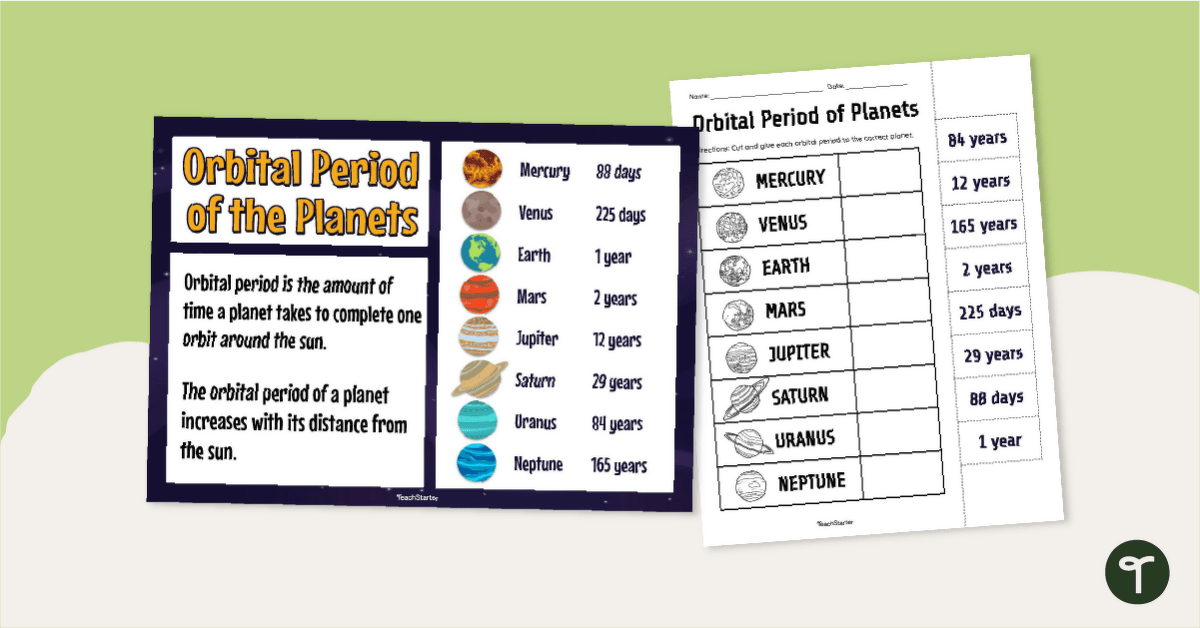

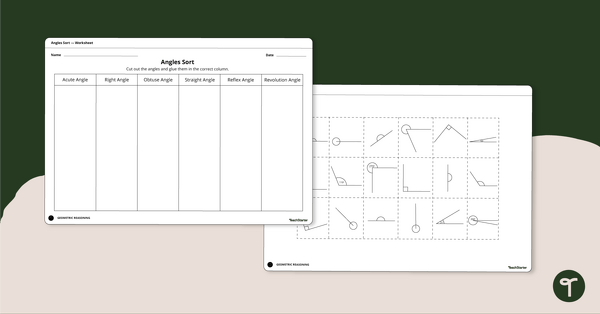
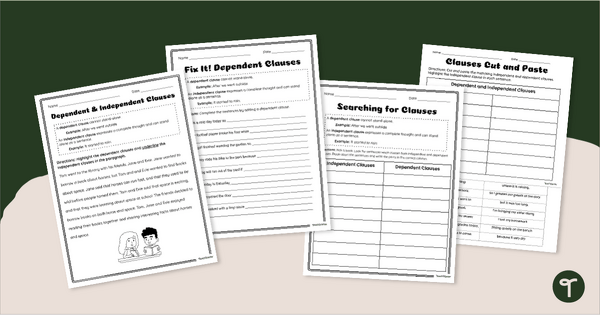
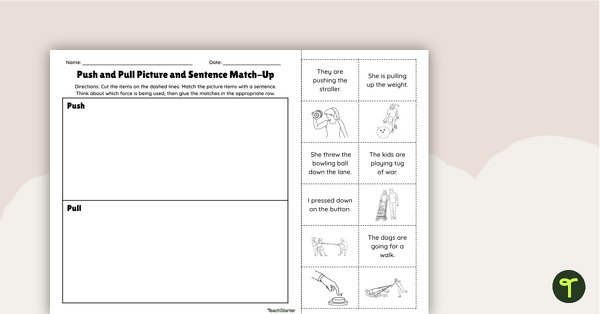
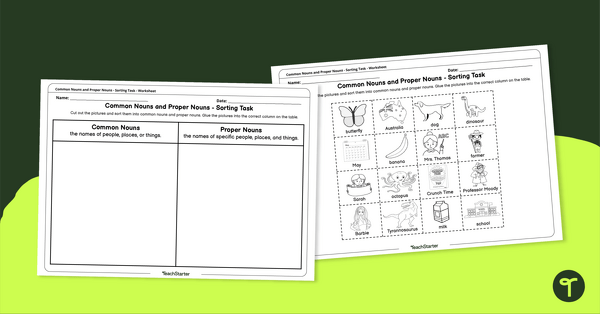
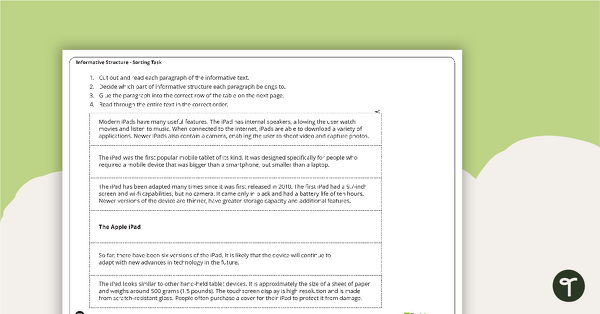
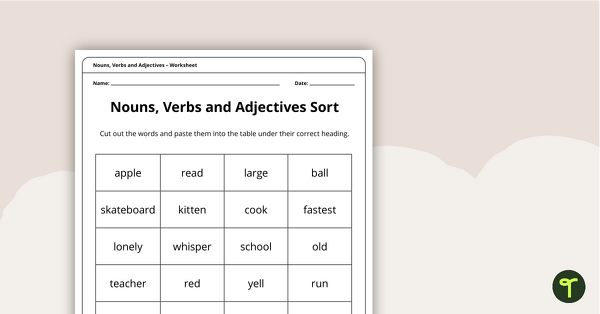
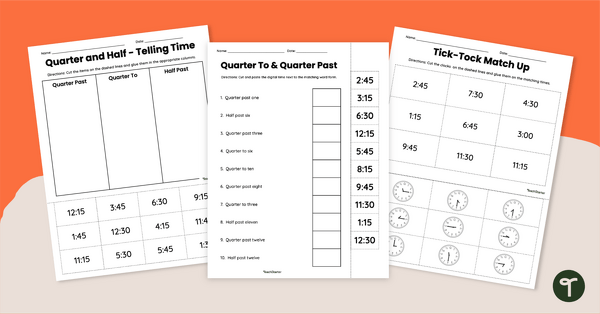
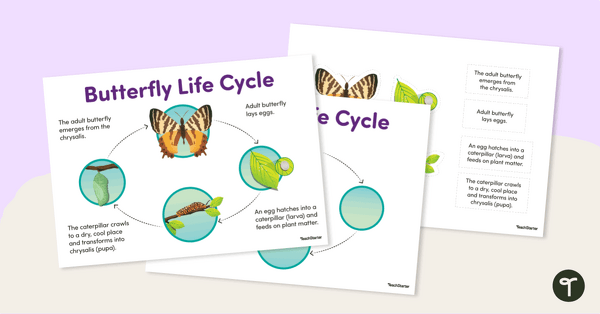
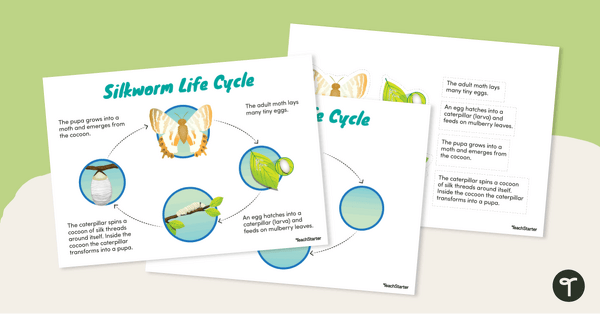
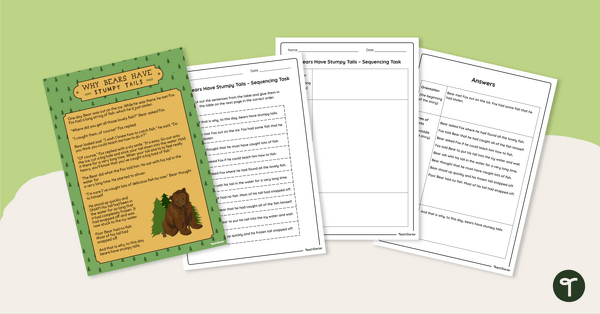
0 Comments
Write a review to help other teachers and parents like yourself. If you'd like to request a change to this resource, or report an error, select the corresponding tab above.